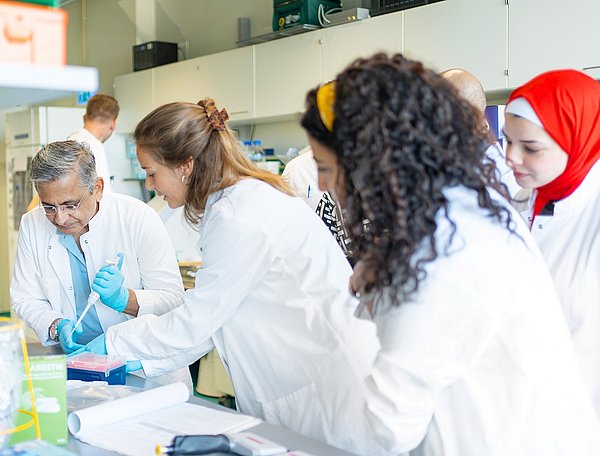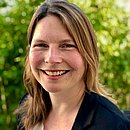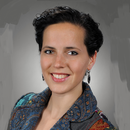The Hopp Children’s Cancer Center Heidelberg (KiTZ) is a joint institution of the German Cancer Research Center (DKFZ), Heidelberg University Hospital (UKHD) and the University of Heidelberg (Uni HD).
Children and young people rarely develop cancer compared to adults. And yet an estimated 400,000 children and adolescents worldwide are diagnosed with cancer* every year.
In countries with high medical standards such as Germany, around 80 percent of these children can be cured with the therapies currently available. In other countries, the cure rate is 60 percent or less. In Pakistan and Indonesia, for example, less than 30 percent of children survive their cancer.
"There is a lack of precise diagnostic procedures, but also a lack of basic care and access to child-friendly cancer therapies. In addition, in many countries there are only a few well-trained pediatric oncologists and experts from other disciplines who are needed for modern pediatric oncology," explains Stefan Pfister, Director at the Hopp Children's Cancer Center Heidelberg (KiTZ), Head of Department at the German Cancer Research Center (DKFZ) and pediatric oncologist at Heidelberg University Hospital (UKHD). “In addition, in many countries there are hardly any reliable figures on cancer in minors, so the actual number of people affected is probably even higher.”
KiTZ is therefore dedicating World Childhood Cancer Day on February 15, 2024 to the topic of "Childhood cancers worldwide" and is presenting the situation in some low-income countries on KiTZ's social media channels. Scientists from the KiTZ, DKFZ and UKHD visiting Asia also provide special insights into international cooperation, which is intended to benefit children with cancer in all countries.
"Our young cancer patients in Germany also benefit from international cooperation," emphasizes Stefan Pfister. "In some countries, for example, certain cancers are much more common than in others, so it is only possible to research the cause of these rare cases and possible therapies if all countries join forces."
*WHO: https://www.who.int/news-room/fact-sheets/detail/cancer-in-children
Social media channels of KiTZ:




